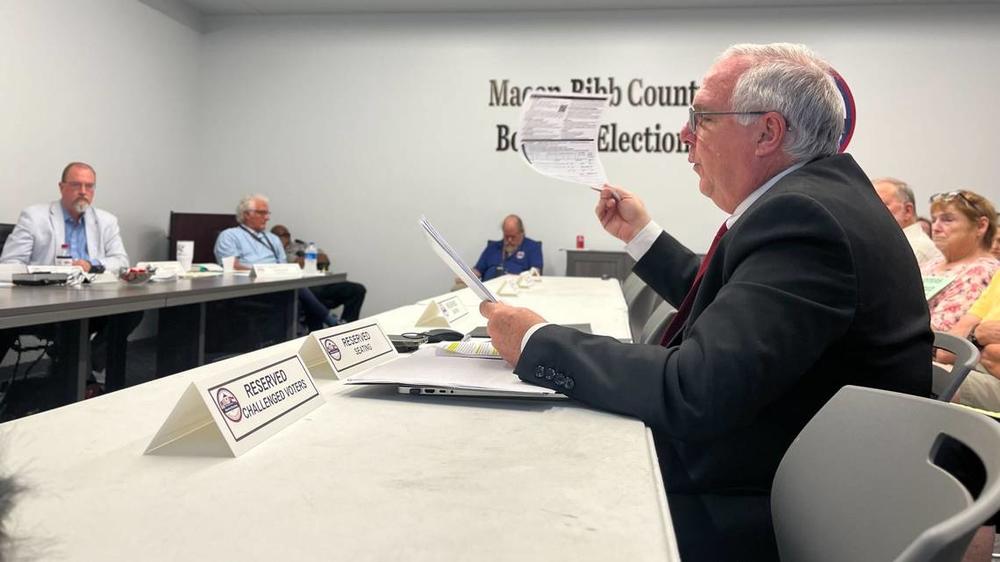
Caption
David Sumrall, chair of the Bibb County Republican Party, presented a spreadsheet and some voter registration records to the county elections board on Monday, July 2, 2024. He accused hundreds of voters of fraud.
Credit: Jesse Fraga/The Telegraph


